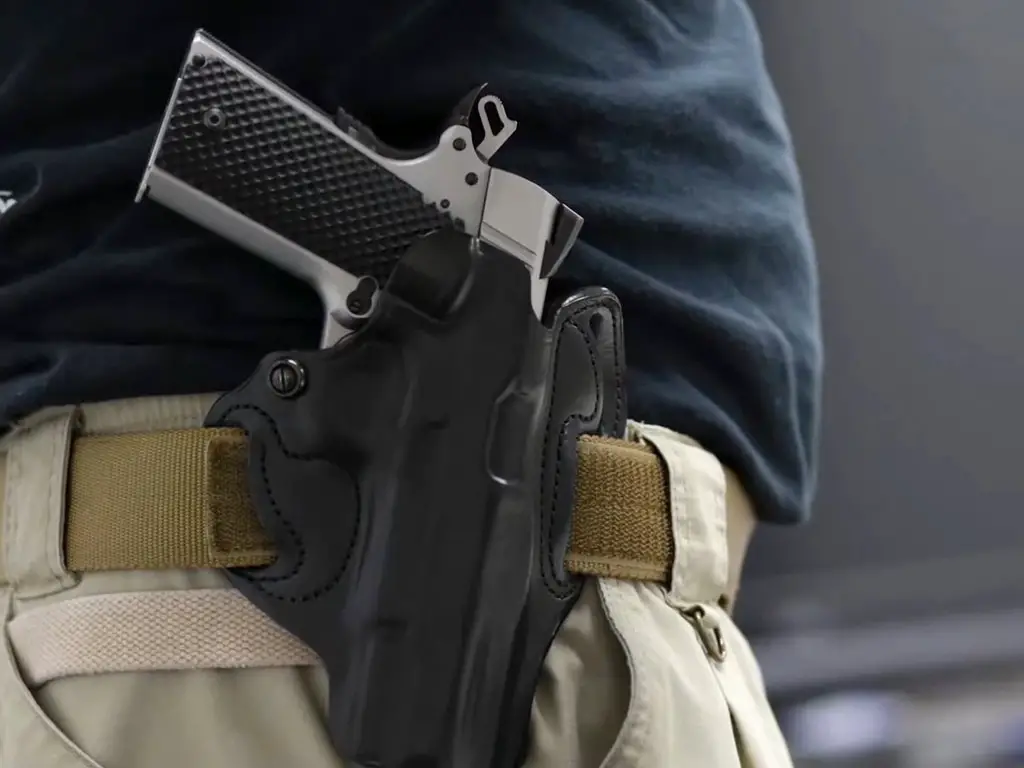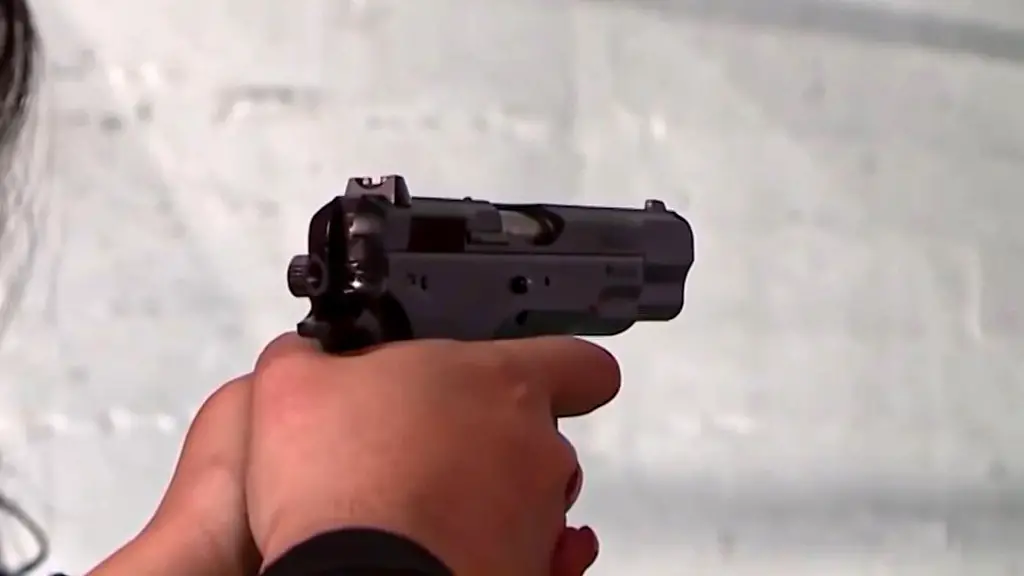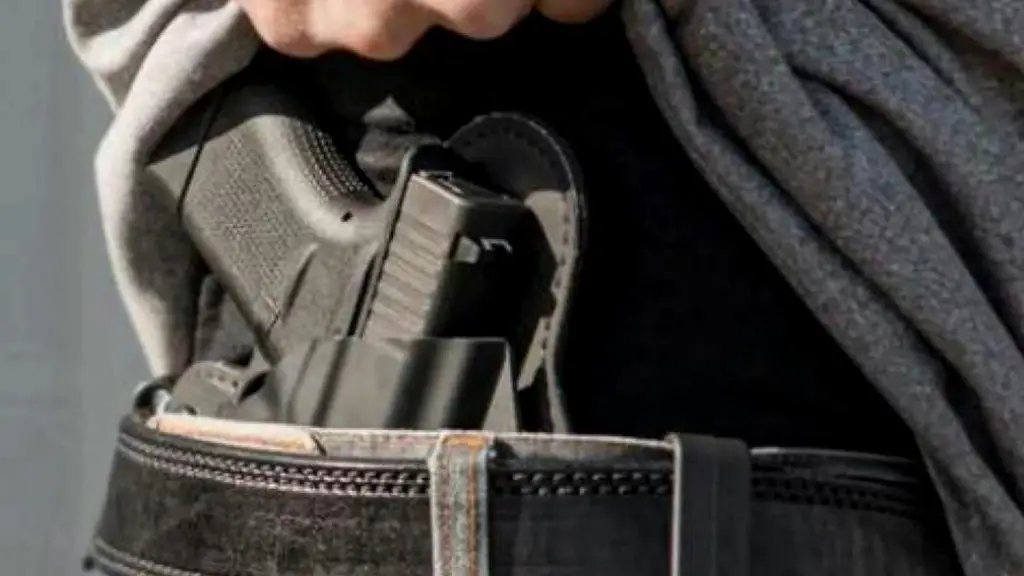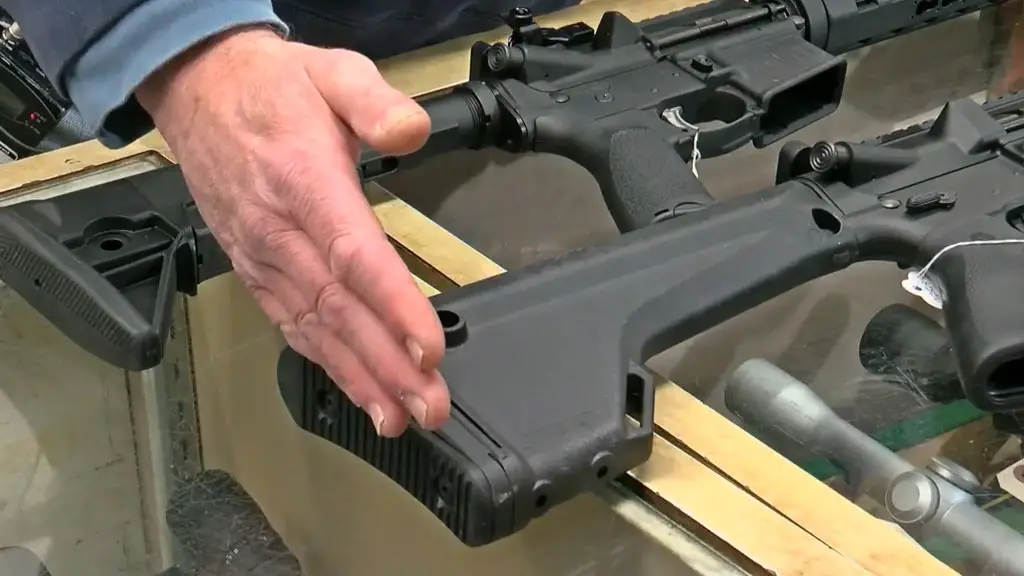Washington, D.C. boasts some of the most stringent gun laws in the United States, shaped by both federal mandates and local ordinances.
These laws are designed to regulate and restrict the possession, registration, and use of firearms within the District’s urban environment.
Following the landmark Supreme Court decision in District of Columbia v. Heller (2008), which affirmed an individual’s right to possess a handgun for self-defense in their home, D.C. implemented a registration system for firearms.
This system requires all firearms, including handguns and long guns, to be registered with the Metropolitan Police Department (MPD).
The registration process involves rigorous background checks, proof of residency, and adherence to specific storage and transportation requirements.
Moreover, D.C. prohibits the open carry of firearms in most circumstances and imposes strict bans on assault weapons, large-capacity magazines, and certain firearm types.
Understanding and complying with these laws is essential for residents and visitors to navigate D.C.’s complex legal landscape surrounding firearms.

DC Gun Laws
Washington, D.C. has some of the strictest gun laws in the United States. These laws are designed to regulate the possession, carrying, and use of firearms within the city limits.
Here are some key points about D.C.’s gun laws:
Registration Requirement
In Washington, D.C., all firearms must be registered with the Metropolitan Police Department (MPD). This includes handguns, long guns, and any firearm defined by D.C. law.
The registration process involves completing detailed forms provided by the MPD, submitting personal information, and providing specific details about the firearm, such as make, model, caliber, and serial number.
Applicants must demonstrate proof of residency in D.C. and undergo a background check, which includes a review of criminal history and mental health records.
Once approved, a registration certificate is issued, which must be renewed every three years.
Handgun Ban and District of Columbia v. Heller
Washington, D.C. previously had a complete ban on the possession of handguns for civilian use. This ban was challenged in the landmark Supreme Court case District of Columbia v. Heller in 2008.
The Supreme Court ruled that the Second Amendment protects an individual’s right to possess a handgun for self-defense within their home. Following this decision, D.C. implemented a registration system for handguns.
While handguns can now be legally owned and registered, strict regulations govern their possession, including requirements for registration, storage, and permissible uses.
Firearm Registration Process

The registration process for firearms in D.C. is stringent. Applicants must meet specific eligibility criteria, including passing a background check conducted by the MPD.
The background check includes a review of criminal history, mental health records, and other relevant factors.
Applicants must provide proof of residency in D.C., submit to fingerprinting, and pay applicable fees.
The registration ensures that firearms are traceable and that only eligible individuals are permitted to possess them under D.C. law.
Registration certificates must be renewed every three years, and changes in firearm ownership or address must be promptly reported to the MPD.
Open Carry and Concealed Carry Restrictions
Washington, D.C. prohibits the open carry of firearms in most circumstances, regardless of whether an individual possesses a permit.
Concealed carry permits are rarely issued and are typically restricted to active or retired law enforcement officers, certain security personnel, and individuals who can demonstrate a documented personal threat that justifies carrying a concealed firearm.
Applicants for concealed carry permits must provide compelling evidence of the need for self-defense and undergo a thorough background investigation by the MPD.
Assault Weapons Ban
D.C. has enacted a strict ban on assault weapons and large-capacity magazines. The ban includes specific firearm models and features that are categorized as assault weapons under D.C. law.
Possession, sale, transfer, and transportation of assault weapons and large-capacity magazines are illegal within the District of Columbia.
The legislation aims to reduce the risk of mass shootings and enhance public safety by limiting access to firearms with high rates of fire and large ammunition capacities.
Storage Requirements
Firearms in Washington, D.C. must be stored in a manner that prevents access by unauthorized persons.
This typically involves storing firearms unloaded and either disassembled or secured with a trigger lock.
Secure storage helps prevent accidents involving firearms and unauthorized access by children or individuals who are prohibited from possessing firearms.
Owners of firearms are responsible for ensuring compliance with storage requirements and may face penalties for failing to store firearms securely.
Transportation Restrictions
When transporting firearms through Washington, D.C., stringent rules apply to ensure public safety and compliance with local laws.
Firearms must be unloaded and secured in a locked container or secured with a trigger lock.
Transporting a firearm through D.C. without stopping is permissible under certain circumstances, such as traveling to and from a residence, shooting range, firearms dealer, or other lawful destination.
Individuals transporting firearms must adhere to the prescribed methods of transportation and comply with all applicable laws and regulations to avoid legal consequences.
Penalties for Violations
Violating Washington, D.C.’s gun laws can result in severe penalties, including fines, imprisonment, and confiscation of firearms.
Penalties vary depending on the nature and severity of the violation, such as illegal possession, carrying, use, or trafficking of firearms.
The Metropolitan Police Department actively enforces gun laws and conducts investigations to ensure compliance with legal requirements.
Individuals found to be in violation of D.C.’s gun regulations may face criminal charges and legal consequences that impact their rights and freedoms.
Washington DC’s Gun Registration Process Compare to Other States

The gun registration process in Washington, D.C. differs significantly from many other states in the United States, reflecting the District’s stringent approach to firearm regulation.
Here’s a comparison highlighting key differences:
Mandatory Registration
In Washington, D.C., all firearms must be registered with the Metropolitan Police Department (MPD). This requirement applies uniformly to handguns, long guns, and certain other firearms defined by local law.
Registration involves completing detailed forms, providing personal information, and submitting to a background check conducted by the MPD.
Background Check
The background check in D.C. is comprehensive, including a review of criminal history, mental health records, and other factors that may affect an individual’s eligibility to possess a firearm.
This rigorous process aims to ensure that only eligible residents of D.C. are permitted to register and possess firearms within the District.
Residency Requirement
Applicants for firearm registration in D.C. must demonstrate proof of residency within the District.
This requirement helps to ensure that only individuals who are legally entitled to reside in and possess firearms within D.C. are allowed to register them.
Renewal Process
Registration certificates in D.C. are valid for three years and must be renewed regularly. Changes in firearm ownership or address must be promptly reported to the MPD to maintain accurate registration records.
This periodic renewal process ensures that the MPD has current information on all registered firearms and their owners.
Storage and Transportation Requirements
D.C. imposes strict requirements on the storage and transportation of firearms. Firearms must be stored unloaded and either disassembled or secured with a trigger lock to prevent unauthorized access.
When transporting firearms through D.C., individuals must comply with specific rules to ensure safe and legal transportation.
Restricted Carry Permits
Washington, D.C. restricts both open carry and concealed carry of firearms.
Concealed carry permits are rarely issued and are generally limited to active or retired law enforcement officers, certain security personnel, and individuals who can demonstrate a documented personal threat that justifies carrying a concealed firearm.
This policy reflects D.C.’s cautious approach to public safety and firearm regulation.
Comparison with Other States:
Variability in Registration
Many states do not require firearms to be registered at all. In states where registration is mandatory, the requirements and processes can vary significantly.
Some states may require registration only for certain types of firearms or may have less stringent background check requirements compared to D.C.
Residency Requirements
While some states require proof of residency for firearm purchases, registration requirements similar to D.C.’s are less common.
States with mandatory registration often have different renewal periods and may not require the extensive background checks mandated by D.C.
Carry Permits
States vary widely in their policies regarding concealed and open carry permits. Some states have shall-issue or may-issue policies where permits are more readily available, often with varying degrees of background check requirements and documentation.
Storage and Transportation
Regulations regarding the storage and transportation of firearms also vary widely by state.
While many states have laws requiring safe storage and transportation practices, the specific methods required (such as trigger locks, locked containers, or other safety devices) can differ.
Assault Weapons and Magazine Bans
States differ in their approach to regulating assault weapons and large-capacity magazines. Some states have bans similar to D.C.’s, while others may have less restrictive definitions or may not regulate these items at all.
Firearms That Are Prohibited in Washington DC
In Washington, D.C., certain firearms are prohibited under local law, reflecting the District’s stringent approach to firearm regulation.
These prohibitions are aimed at enhancing public safety and reducing the risk of firearm-related violence.
Here are the key categories of firearms that are prohibited in Washington, D.C.:
Assault Weapons

Washington, D.C. has enacted a strict ban on assault weapons. This includes specific models and types of firearms that are classified as assault weapons under local law.
The definition typically includes semi-automatic rifles and pistols with certain features such as pistol grips, folding or telescoping stocks, flash suppressors, or grenade launchers.
These firearms are deemed to pose a higher risk due to their rapid rate of fire and capacity for large-capacity magazines.
Large-Capacity Magazines
Under D.C. law, large-capacity magazines are prohibited. These magazines, which can hold more than a specified number of rounds of ammunition (commonly 10 rounds or more), are restricted to reduce the potential for mass shootings and other firearm-related incidents involving rapid and sustained gunfire.
Machine Guns and Fully Automatic Firearms
Machine guns and fully automatic firearms are generally prohibited in Washington, D.C.
These firearms are capable of firing multiple rounds of ammunition with a single pull of the trigger, making them highly regulated under federal and local law.
Possession, sale, or transfer of these firearms in D.C. is strictly prohibited except under limited circumstances, such as by authorized law enforcement or military personnel in the course of their duties.
Short-Barreled Shotguns and Rifles
Short-barreled shotguns (SBS) and short-barreled rifles (SBR), which are firearms with barrels shorter than a specified length (typically 18 inches for shotguns and 16 inches for rifles), are also prohibited in Washington, D.C.
These firearms are subject to strict federal regulations under the National Firearms Act (NFA), and possession of SBS or SBR in D.C. is generally illegal except under very limited exemptions.
Certain Other Firearms Defined by Law
Washington, D.C. law includes provisions for defining and prohibiting specific firearms based on characteristics or features deemed to pose heightened risks to public safety.
These provisions may encompass firearms that are designed or modified to be concealable, firearms with specific combinations of features, or other categories specified by local regulation.
Enforcement and Penalties
The Metropolitan Police Department (MPD) actively enforces these prohibitions on firearms in Washington, D.C.
Individuals found to be in possession of prohibited firearms or accessories may face severe penalties, including fines, imprisonment, and confiscation of firearms.
The strict enforcement of these laws underscores D.C.’s commitment to reducing firearm-related violence and enhancing public safety through comprehensive regulation and enforcement measures.
Frequently Asked Questions
Can I legally own a handgun in Washington, D.C.?
Yes, following the Supreme Court’s decision in District of Columbia v. Heller (2008), handguns can be legally owned and registered in D.C. under strict regulations.
Do I need to register my firearm in Washington, D.C.?
Yes, all firearms, including handguns and long guns, must be registered with the Metropolitan Police Department (MPD) in D.C. Registration involves a background check and renewal every three years.
Can I open carry a firearm in Washington, D.C.?
No, open carry of firearms is prohibited in D.C. except in very limited circumstances, regardless of whether you possess a permit.
How can I transport firearms through Washington, D.C.?
Firearms must be unloaded and secured in a locked container or secured with a trigger lock when transported through D.C. Stopping in D.C. while transporting firearms is generally prohibited.
Are assault weapons and large-capacity magazines legal in Washington, D.C.?
No, D.C. has strict bans on assault weapons and large-capacity magazines. Possession, sale, transfer, and importation of these items are prohibited within the District.
Conclusion
Washington, D.C.’s stringent gun laws reflect a commitment to public safety through comprehensive regulation of firearm possession, registration, and use.
The District’s legal framework, shaped by landmark Supreme Court rulings and local ordinances, mandates thorough background checks, registration of all firearms, and strict prohibitions on assault weapons, large-capacity magazines, and certain firearm types.
These measures aim to mitigate the risks associated with firearm-related violence while balancing individual rights within urban settings.
Enforcement by the Metropolitan Police Department ensures compliance and reinforces the District’s stance on firearms as a tightly regulated privilege rather than an unrestricted right.
Residents and visitors alike must navigate these laws carefully, ensuring they adhere to registration requirements, storage protocols, and transportation guidelines to avoid legal repercussions.
Washington, D.C. serves as a model for cities grappling with balancing constitutional rights with public safety concerns in the realm of firearm regulation.




Allison Brice